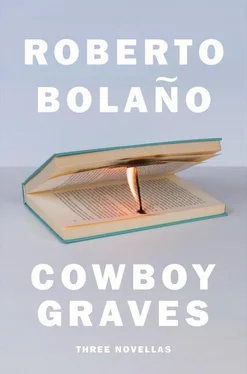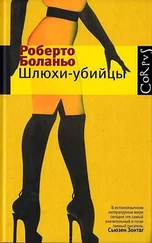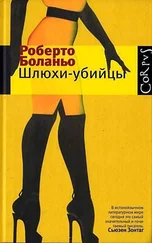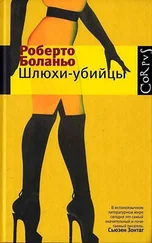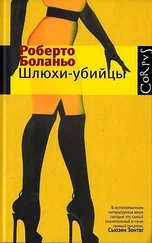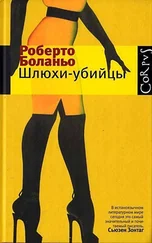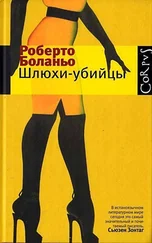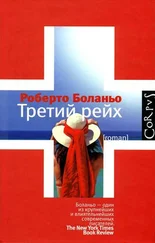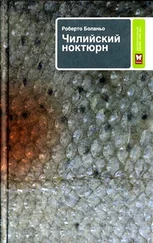“Are you including him in your Signals , too?”
“His complete works, compadre. The acme of the arrogance brigades, confound them, pack of morons…”
“But this poem isn’t in the Watchful Eye …”
“Ah, but we have our sources. The poem in question turned up at the Concepción Library on the shelf of lost works, between a monograph on the Seventh Regiment (an insane book that has our valiant troops scaling the slopes of Machu Picchu) and a Crawford and Sons volume on certain forays of Chile’s premier botanist, full of sketches of the nation’s flora and some of its fauna. What was the botanist’s name, for Christ’s sake? There must be something wrong with me, Rules Boy! I remember the publishing house, gone more than sixty years now, and I can’t remember the botanist.”
“Philippi.”
“That’s right. Rudolf Amand. God, what’s wrong with me!”
“Relax, Macaduck. You found it between the Seventh Regiment and Philippi. But what did you find, exactly?”
“The journal with the poem in it, you dolt. Poems by Ramírez, some guy, Ismael Copero, and somebody else I can’t remember. All of it crammed into an oversize eight-page booklet. The title of this monstrosity was Semana Santa , I shit you not. Semana Santa , get it? Initials: SS.”
“Take it easy.”
“Fine…”
“So where can I see this journal?”
“I told you, dumb ass, in the library. I’ll make you a map so you can find the famous shelf without getting scrambled. Some strange books are buried in that dump. On Ramírez’s shelf, you’ve got the Italian Fascists cuddling up to the Nazis and the National Unionists. Or their artistic manifestations. I mean: thugs on the plane of the sublime. The truth is, there’s not much to choose between them, but you can trace the resolve. A straight line from the turn of the century, followed relentlessly, sometimes successfully and sometimes not: usually not. Occasionally I try to imagine what the rat who drops books off there must be like. The rat or the monk.”
“I’ll go and see it with my own eyes,” I said.
“Better wait and read my Signals . Poking around in the dust will only confuse you more, Rules Boy.”
“I’m going anyway,” I said.
“What do you think he meant by saying that the daughters have hairy balls?”
“That they’re men, obviously, Bibiano. Walt Whitman’s daughters are men. Which is why they have hairy testicles… He must be referring to Neruda, Sandburg, de Rokha, Vachel Lindsay…”
“What about when he says that they’re gilded dolls?”
“Man, ‘dolls’ is there to rhyme with ‘balls,’ that’s the only reason I can think of. Unless the point is that they have money. Golden girls. But I doubt it.”
“What about Walt Whitman’s daughters sailing as night falls?”
“Same thing: it’s for the rhyme. Makes no difference whether they sail as night falls or whether they sink their ships, like Hernán Cortés.”
“Look, this is how I see it. Walt Whitman is America. ‘Walt Whitman’s daughters have hairy balls’ is a reference to the Amazons or the angels, the original inhabitants of the continent. The second line, about gilded dolls, means that the Amazons have forgotten their true nature and gotten mixed up with the new throngs of European immigrants, and on top of that they have gold: money or wisdom. The third line, when the daughters of Walt Whitman sail as night falls, is a reference to the Amazons’ voyage to America. When you brought up Hernán Cortés, you unintentionally came close to hitting the nail on the head. The fourth and fifth lines, in which they eat turkey breasts, suggests—no, flat out states—that the Amazons came down to Earth devouring their parents, the gods of heaven. Devouring them with smiles on their faces, I’d say.”
“You’re messing with me, Macaduck.”
“Actually, the events described in the poem aren’t in chronological order. If we read it this way around, our birdie will sing a different tune: ‘Walt Whitman’s daughters sail as night falls / Eating breasts / Of turkey / The daughters of Walt Whitman have hairy balls / The daughters of Walt Whitman are gilded dolls,’ and even better: insert the adverb ‘today.’ Today Walt Whitman’s daughters (now, at this moment of struggle and destruction) are gilded dolls (they mingle complacently with decent working women, decent wives and mothers). And, as I’m sure you know, in some cultures the turkey is synonymous with sovereignty, wealth, and power… In America, and Europe too, the turkey stands for the father…”
“I always thought that kids who acted dumb were called turkeys. In school that’s what they called me for a while.”
“That’s true, too, that’s the flip side of it… We want to believe that the gods are stupid. But we don’t lift a finger in the face of their wrath. Only the Amazons have ever been capable of eating them…”
“So, according to you, the hidden message of the poem is…”
“I’m not surprised you got a zero in mythology, Rules Boy. These chicks devour their parents and come down to earth thinking they’re the shit, prancing around, even eating! Can you imagine the movie? Like the dinner party from Venus Attack , when an H-bomb is dropped on San Francisco and the guests come out on the terrace carrying chicken wings and glasses of wine, and they keep chewing and sipping as the mushroom cloud grows in the distance, have you seen it?”
“I saw it.”
“Well, it’s the same thing. The Amazons step out of their ships, victorious, feeling the peace that settles in the pores once the sweat has dried and everything is over. They come, they see, and they conquer. Still, the mere fact that a poet (especially when that poet is Carlos Ramírez) has testified to their arrival hides the seed or promise of destruction.”
“Whose destruction?”
“Come on, man, the Amazons’.”
“But why? Why would he destroy them?”
“I’ll tell you, but don’t yell. I could quote some sixty psychology books. But I’ll make it brief: the guy has a problem with women…”
“Oh, that’s all…”
“No, that’s not all. He’s got muscle—that’s how I’d put it. The son of a bitch, if I can take poetic license, is an oarsman of fate…”
Cherniakovski Presents Two Images of India at the University of Concepción Poetry Workshop, 1972
The photographs come from two photographers, two books, and two ways of seeing India. Some are by Englishman Frederic Chester, from the book The Wellspring of the Aryan Race . The others, illustrations to The Chaste Secrets , by Dr. (Mrs.) Amalfitano, were taken by the Argentine photographer Eduardo “Lorito” Lozano. I think they complement each other, even if the complementing takes place in a savage realm, full of mirrors and heat. The faces, however, are noble and indifferent, as if they know something that we don’t. As if they’ve come to accept something—perhaps after a millennial struggle—that we likely would not. Cherniakovski’s face was contorted… I remember that it was winter and it was pouring rain. The Pons sisters, Javier Oyarzún, Fuenzalida, and I were all there, talking Rilke. Cherniakovski arrived ten minutes late. He was carrying a slide projector. The projector was wet and so was he. Not bothering to dry himself off, he plugged in the projector and began to show the slides. There was no need to close the curtains: low black clouds covered the sky. Rain streaked the windows. That’s a Brahmin, said Cherniakovski. Shot of a man with white hair and a white beard, dark skin, dark eyes, lips parted as if in conversation with the man on the other side of the lens. Cherniakovski sucked in air through his nose. Then came photographs of villages and cities, though it was hard to tell which was which. Boys in shorts, Talcahuano, said Javier Oyarzún. I searched for Cherniakovski’s face in the semidarkness. His expression was stern and his eyes were glued to the screen. The Brahmin, whispered Cherniakovski. Again we saw the old man with the white beard, now sitting on a stone. Then a bright-red bus with white stripes, packed to the brim, and the statue of a god in a shrine by the side of the road. The god’s eyes were green. The projector made a sound like an eggbeater and between slides the screen went blank: a weirdly illuminated stretch of wall. Some of us lit cigarettes. Cherniakovski said: that’s a Brahmin, do you know what he’s doing? His tone of voice made us shudder for some inexplicable reason. The rain seemed to fall inside the workshop. When we tried to look closer, the slide was gone. Encore, said Javier Oyarzún, but now other snapshots of the city’s streets and inhabitants appeared. Indians eating in markets, old women with goods for sale on the ground, beggars in black Ray-Bans. Outside the rain literally lashed the walls. On the screen: a road, the old Brahmin, and the photographer’s shadow. Then another photograph, closer up, the Brahmin casting a sideway glance at the lens with an apologetic smile. In the next one, the Brahmin’s back was to the photographer and he was walking toward a city that could be glimpsed on the horizon. The city was barely visible and the air was dirty, stung with smoke and fog. There were five or six more slides until the old man disappeared around a bend. Cherniakovski coughed. What is the Brahmin doing? he asked. After some discussion, all we could say was that the Brahmin was walking toward a city. Calcutta? asked Javier Oyarzún. Bombay, said Cherniakovski. And the old man wasn’t just walking, he was staring at the ground. Why? So he doesn’t kill anything. Not even a single ant. Which is why the trip takes so long when he travels by foot—and these saints only travel by foot, I think, though I can’t swear to it. A fifteen-mile walk can take four days, but they don’t care. These people would rather die than hurt a butterfly. Now look at this. We sighed and turned our eyes to the screen again. We were definitely better off with Rilke. A room in India. Candles burning and faces emerging from the darkness as if from a black pool, smiling at the camera. Women? No, men wearing saris, their eyes made up. Transvestites, said Javier Oyarzún. Eunuchs, came Cherniakovski’s voice from the rear of the workshop. I looked at him. His eyes stared, dazzled by the halo of light. The eunuchs were having a party. In a corner of the room, a boy. He’s naked. A man with long white hair ties the boy’s little testicles with a yellow ribbon. Cherniakovski let the white light linger on the wall. Now they go ahead and castrate him, he said. The operation is performed by the eunuchs’ guru. We saw the skinny face of the boy. Ten, maybe eleven. Skinny and smiling. And Gabriela Mistral is dead, we heard Cherniakovski say in a soft, very dangerous voice. On this detail I must insist: his voice was as lethal as a razor-sharp boomerang, and so real that I ducked my head. Where the hell did you get these photographs? asked Javier Oyarzún, shrinking back in his seat, horrified. Cherniakovski didn’t reply. He lit a cigarette and sat down in one of the many empty chairs. The projector kept running on its own. Its rattle gradually meshed with the sound of the rain. The rain seemed to say: get outside and enjoy your youth. Indians walking, working, eating, sleeping, but especially Indians walking. As if the slides were stuck… With my head on fire I took a last look at the screen. I seemed to see Juan Cherniakovski there, very dirty, his hair longer, smoking a cigarette and walking in the crowd. But probably it was just another Indian.
Читать дальше
